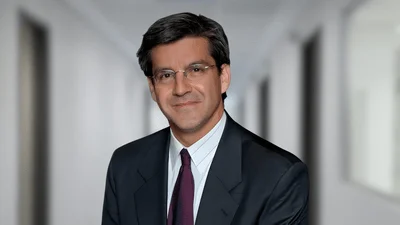Council 31 Deputy Director Mike Newman | (Facebook)
Council 31 Deputy Director Mike Newman | (Facebook)
The U.S. Supreme Court will now hear a case it deadlocked on in March 2016 regarding the Gov. Bruce Rauner-initiated lawsuit on the expansion of state worker rights.
According to a video on the American Federation of State, County and Municipal Employees Facebook page, the case, Janus v. AFSCME, could eliminate fair-share agreements in which workers who are not union members must still pay fees to help offset bargaining costs.
While workers who are not members do not have to pay a full portion of dues, they do to pay a pro-rated amount under fair share laws even if they do not support the union.

Gov. Bruce Rauner
“No person should be forced to give up a portion of their pay each month to fund public sector union activity against their will,” Rauner said in a statement. “It’s a fundamental violation of their First Amendment right to free speech and association. I am hopeful the Court will see it that way in the end.”
Rauner issued an executive order in 2015 so that state government could stop passing fair share fees on to unions and filed a federal lawsuit to have his decision declared legal, according to a Chicago Tribune article.
“[Janus v. AFSCME] is yet another example of corporate interests using their power and influence to launch a political attack on working people and rig the rules of the economy in their own favor,” AFSCME is quoted in the article.
In the original California case, the Supreme Court deadlocked with a 4-4 vote following the death of Justice Antonin Scalia. Neil Gorsuch brings he court back to full membership, meaning the fair share fees could be eliminated if Gorsuch sides with the four other conservative justices.
Rauner told the Tribune that he feels certain the court will side with him.
“[Eliminating fair share] will be transformative for the state of Illinois, transformative for America and the relationship between our taxpayers and the people who work for our taxpayers,” Rauner said. “It’s not going to be a one-way deal anymore.”
A decision is expected by the end of the court's term in June.





 Alerts Sign-up
Alerts Sign-up